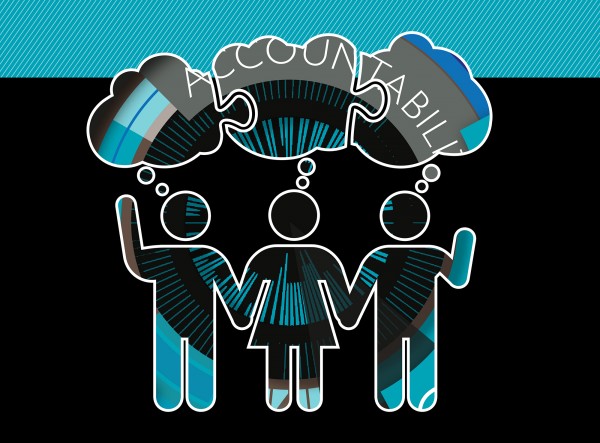At the International Conference for E-Democracy and Open Government May 21 – 23, 2014, a conference of academics focussed on governance, technology and open data, we invited participants to critique our theory of how our programme might generate positive change.
Programme Director Marjan Besuijen and Director of Global Action Chris Underwood presented the theory of Making All Voices Count in the context of a range of current thinking on how change happens, and what barriers are in place to prevent it. They drew on the work of Owen Barder, Ben Ramalingam, our own Rosemary McGee and Reed among others to provoke some searching questions:
Have we adequately reflected on models of social change? How will we know when that change is happening? How can we justify or attribute our contribution to that process of change that might have taken place anyway, and is shaped by local factors that are out of our control?
This was about being transparent and open to scrutiny, it was also about learning from the perspectives of others and also because we think learning is a process that never ends. The participants made a number of insightful and valuable contributions, including:
-
we need to be conscious that transformative change happens over a very long period. The World Development Report of 2011 talks in terms of 30 years, for example. Initiatives like ours need to understand, per country, where they are in that process, and also that change is not a journey from A to B, but one that can double-back, be reversed and take different turns.
-
we should be aware that legislation that might be put in place for the right reasons, such as those to stamp out corruption, can also stifle innovation and risk-taking if they place too heavy a regulatory burden on people and organisations
-
we need to learn from historic examples of social movements that have generated change and why they succeeded or failed
-
we need, in each case, to ground our approach firmly in the specific local contexts in which we work, and design our partnerships in appropriate ways
-
our theory of change needs to be realistic and reflect, for example, the distribution of power in each local context
-
we need to be aware of the relative value different governments might place on transparency or accountability
And as the the Center for e-Governance reflects in this post based on our workshop:
The complexity of governance reform makes clear cut pathways to specific results difficult – management has to be adaptive and take unforeseen developments into account.
Much of these contributions were based on research that the academics themselves had conducted in many of the countries in which we work and the session was positive, lively and constructive. We are hugely grateful to the conference organisers for enabling us to take part and would encourage other initiatives and projects to open up in this way too.
For a video summary of the event, see below:
